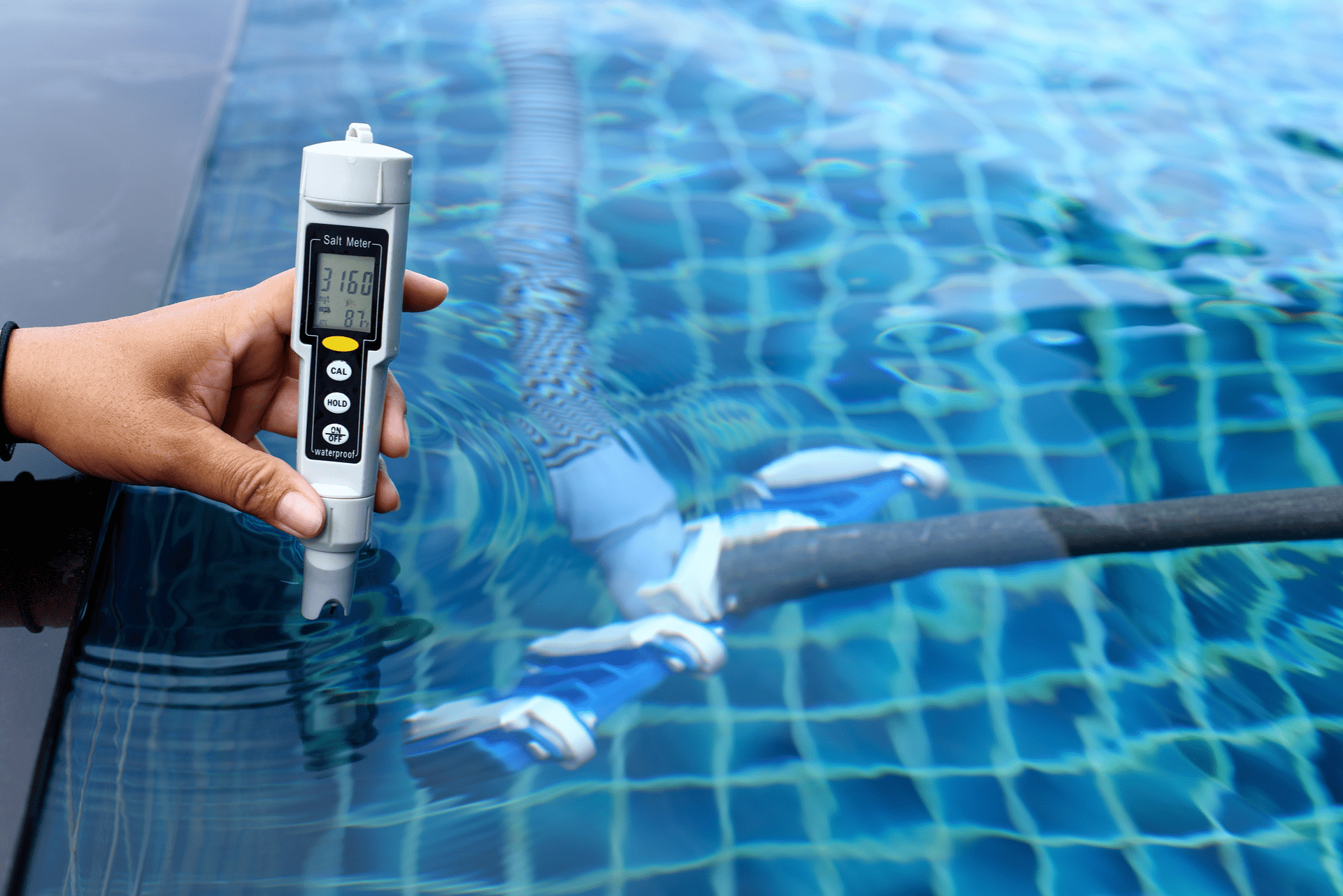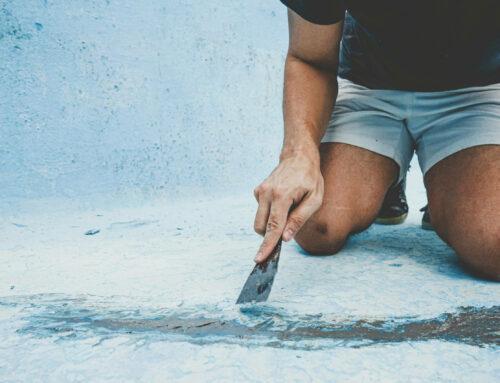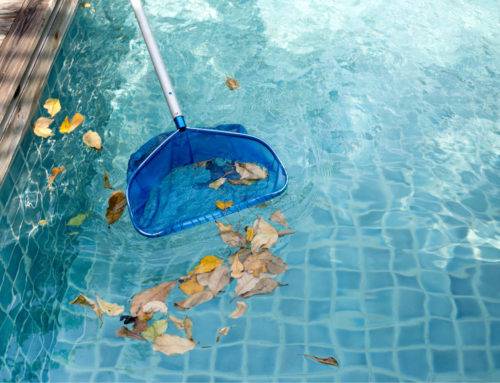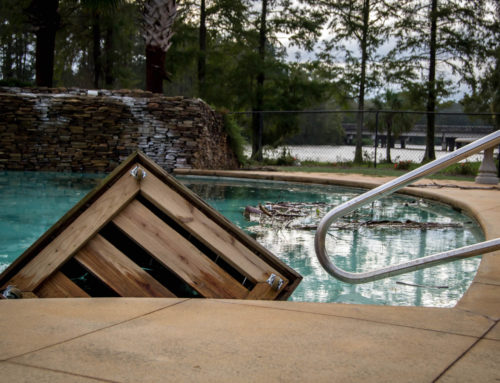Saltwater swimming pools are one of the most popular ways for owners to enjoy their fiberglass pools. Not only are fiberglass pools less susceptible to the damage that salt water can have on concrete and gunite pools, but saltwater also provides a healthy alternative to the “chlorine feel” of traditional swimming pools.
While we know your fiberglass pool is built to last, there are still some essential saltwater maintenance tips that could help extend the life of your pool equipment and the latest resurfacing job.
Here’s a look at 6 new year’s resolutions you should keep for your saltwater pool in 2022.
Keep Your Pool Deck Clear of Saltwater
Yes, maintaining your swimming pool itself is important, but so is protecting your surrounding pool deck and nearby landscaping. As your family uses your saltwater pool, their carefree splashing can lead to long-term damage to your concrete, wood, and stone decks.
Fortunately, preventing salt corrosion on your pool deck only requires a weekly spray down with a hose that keeps salt out of where it doesn’t belong.
Unfortunately, the grass isn’t as easy to save from saltwater. Salt burns grass and plants. So, if you have some landscaping directly near your swimming pool, either move it away or be wary of the amount of splashing that occurs in your pool.
Ensure Your Salt Cell Remains Clean
Your pool’s salt cell is what creates the natural chlorine for your saltwater pool. It’s recommended to examine and clear out buildup from your cell every 30 to 90 days.
While most buildup can easily be cleaned out manually, the longer you wait, the more the job will require a professional maintenance routine or premature salt cell replacement.
Routinely Examine your Swimming Pool for Cracks
Saltwater can easily seep into any swimming pool cracks and start to cause damage to the material beneath your pool’s surface. Although most hairline cracks are impossible to see with the naked eye, scheduling pool leak detection is a great idea if you start to notice issues like fluctuating chemical levels, standing water around your swimming pool, and extraordinarily high water bills.
Remember, Not All Salts Are the Same
This tip is crucial! Although you may think that salt is “just” salt, the truth is that not all salts are created equal. Low-quality salt may seem like a money-saver at the time of purchase, but its low quality can negatively affect the longevity of your salt system.
When buying salt for your swimming pool, make sure that it’s completely safe for pool use and is as high a grade as possible. The fewer impurities your salt has, the lighter the stress is on your swimming pool’s plumbing system.
Test Your Chemicals Monthly
Even with salt water, there is still plenty of testing you’ll need to perform in order to keep your fiberglass pool in great condition.
Monthly testing of your pool’s alkaline, calcium, and pH levels help maintain a healthy swimming pool that is safe to enjoy at any time of the year.
Start Your Journey Towards a Better Pool Today, With Texas Fiberglass Pools
If your concrete or gunite swimming pool is facing long-term damage from your desire to swim healthier in saltwater, it’s time to level up your swimming pool to a fiberglass pool option. With Texas Fiberglass Pools on your side, a resurfacing job is easy, and we guarantee only the best and most beautiful results.
Contact us today to get your swimming pool on our schedule before next year’s swimming season kicks in!






